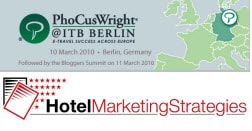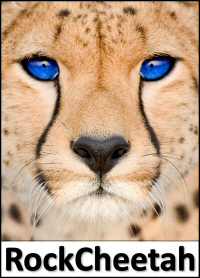The first day of the 2010 Association of Travel Market Executives conference has wrapped up and provided its audience of travel marketers with statistics, strategies and technologies to consider. The conference theme was “The New Now & The New Next”
What Smartphone Should I Buy?
With legions of swooning fans and impassioned critics, the mobile turf battles have erupted beyond the mobile carriers and have simultaneously broken out between handset manufacturers, operating systems and rich media platforms. The burning question for millions of US consumers is “What Smartphone Should I Buy?”
Impact of Structured Data on Travel Search
Search is radically changing to become more contextual, relevant and focused on producing the right answer for the user. Structured data sourced from the Deep Web is essential to provide a solid foundation for linked data to define semantic relationships between pieces of information. This is what transitions the web of documents to a web of data. The resulting relevant, convenient and highly personalized search experiences create trust. Whoever earns the trust of the consumer wins. The endgame for Web 3.0 players has never been more clear. Presented at the Open Travel Alliance 2010 Advisory Forum.
Individualization of Travel – ITB Berlin Convention
Text of opening remarks by Robert Cole when moderating the Individualization of Travel panel on March 12, 2010 on Marketing & Distribution Day at the ITB Berlin Convention. Key takeaways included travel is both an intensely personal and highly social experience. It is also a very complex multi-step process. A massive quantity of potential options exist, as well as dramatically different personal decision making processes. Now, social media now enables a transition from mass broadcasting brand messages to establishing relationships with customers and interactively communicating.
How Google Can Help Simplify Online Travel Planning
The planning phase of the seven-step travel process is a hot area for travel startups that are developing innovative solutions to address a complex problem. Google, with 70+% share of US search traffic and many existing travel planning tools is perfectly positioned to improve and simplify the travel planning process. In the future, end-to-end planning of complex travel arrangements will result from enhanced profiles supporting trip-centric traveler personas and geo-aware itinerary sequencing tools. The introduction of hard and soft filtering will provide support for emerging Web 3.0 technologies capable of providing more relevant travel product recommendations.
Multiple Persona, Trip-centric Travel Has a Name – EveryYou
Travel is a complex process that differs significantly from other online purchases. Traveler destination, hotel, airline and travel itinerary selection decisions are not only highly personal in nature, but also may be based on very different criteria depending on the nature of the trip being planned. By applying multiple persona marketing concepts against specific trip-centric attributes provides a multi-dimensional traveler profile that is far superior to conventional frequent traveler information maintained by online travel sites, hotels, airlines and car rental companies. EveryYou is the term given to the concept by blogger Tim Hughes in a presentation prepared for the Web In Travel Conference at ITB Asia in Singapore.
How Google Can Help Enhance Online Travel Research
Recent studies have shown that the research phase of the seven-step online travel process is becoming frustrating for consumers. Many travelers search a large number of sites or spend extended periods of time seeking information regarding airlines, hotels, car rentals, attractions and destinations that are best suited to their interests and needs. Google, with its massive search traffic and extensive advertising platform is well suited to help the travel industry improve travel research. In addition to many innovative tools that are currently offered, Google could help travel marketers by embracing travel industry standards and working to create persona-based traveler profiles that will better align the products of travel suppliers with customer needs.
The World’s Most Infamous Hotel Stay?
Keith Moon, the notorious drummer and perhaps equally feared hotel guest, celebrated his 21st birthday on August, 23 1967 following a concert in Flint, Michigan. The site was the Flint Holiday Inn, who even posted a warm welcome message to Keith on its iconic “great sign.” The 1960’s were largely about pushing boundaries and the loss of innocence. Keith pushed the boundaries; the hospitality industry discovered a new benchmark for room destruction and property damage. Both rock ‘n roll and the hotel industry were forever changed, and the legend of the most world’s most infamous hotel stay was born.
How Google Can Help Facilitate Travel Inspiration
Google, through its embracing the Open Source development community provides a wide variety of tools to developers, if creatively employed, can produce applications that help inspire travel. The Google Code site that supports developers offers numerous technologies that can help online travel sites create more compelling content to support eComerce for airlines, hotels, car rental, attractions and destinations. Google Wave provides a powerful platform for traditional travel agents to engage and collaborate with clients that will enhance their ability to inspire travel.
















